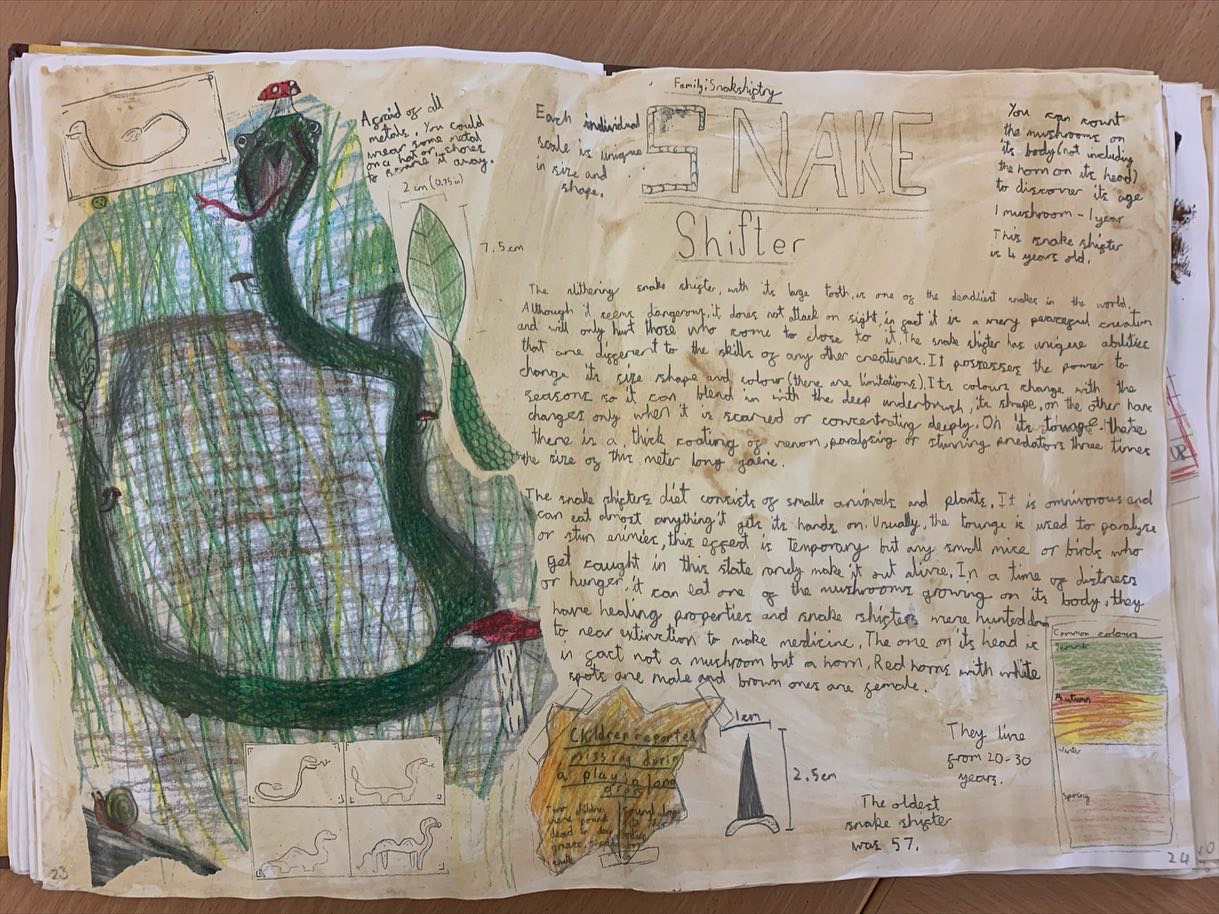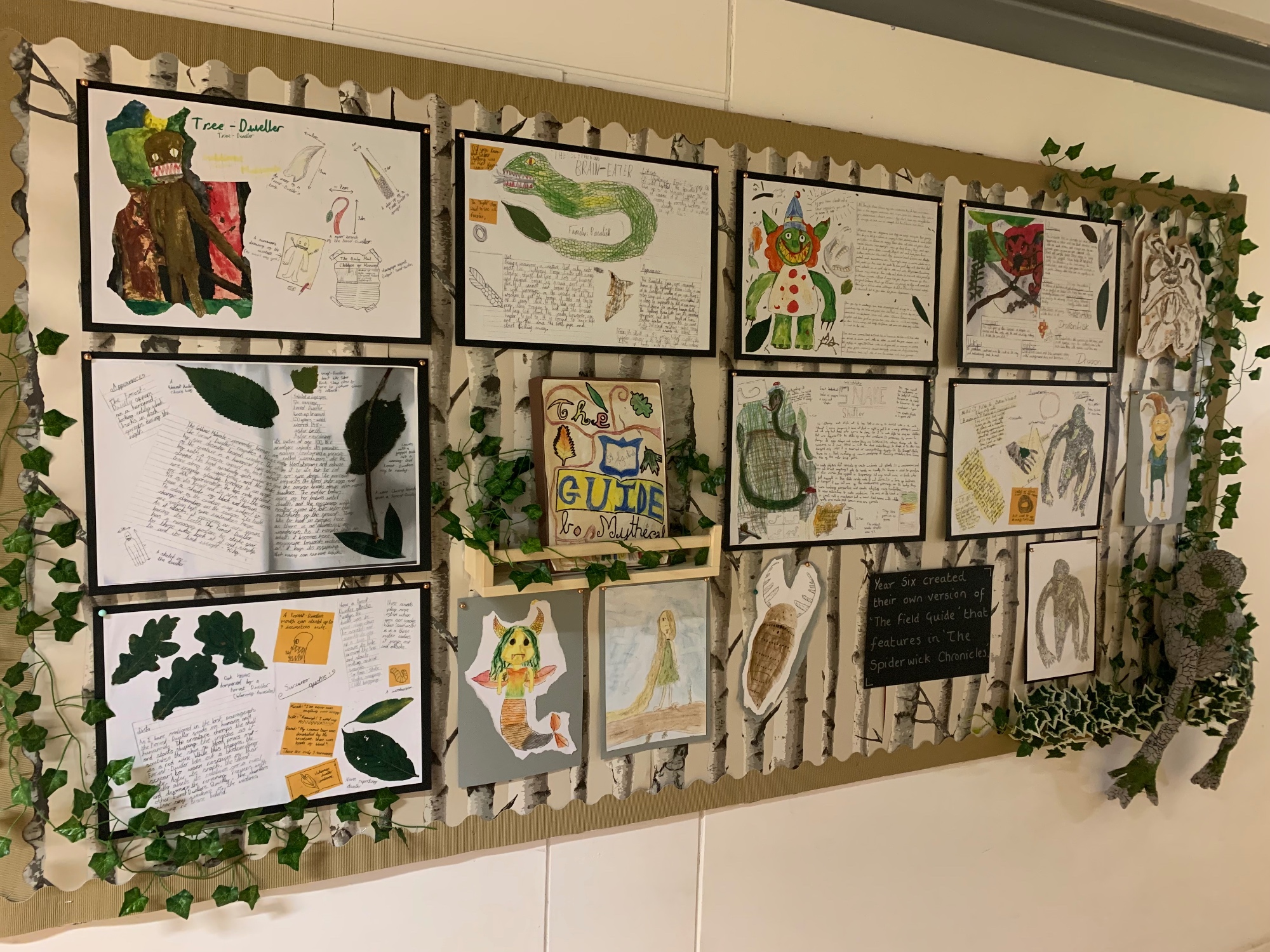Writing

‘Writing is the best way to be heard when one cannot speak, to be understood when one is not present, and to be remembered long after one is gone.’
St Francis De Sales
INTENT
At St Augustine’s we use high-quality picture books, texts, film and real experiences, linked by an overarching theme, to inspire our children’s writing.
There is a clear progression across both fiction and non-fiction genres as the children move up through the school which will allow them to revisit each genre yearly, building on previous knowledge and establishing children’s identities as strong writers.
Grammar and punctuation is introduced and then rehearsed through each genre as appropriate; thus ensuring that all new GPS is covered over the course of a school year in the most meaningful way and gives an immediate purpose to the skills being taught.
IMPLEMENTATION
In order to help us to develop confident, enthusiastic writers who can express themselves in a variety of different styles and across a variety of contexts, our teaching of writing is linked to our class themes. Writing opportunities are linked to our themes, with the intent to excite, enthuse and engage children in writing that is purposeful and meaningful. This provides our children with regular opportunities to write for a range of purposes and audiences.
Spelling is taught daily in Key Stage 1 through Phonics lessons, and weekly in Key Stage 2. Children who need additional support with phonics or spelling receive a variety of interventions that are tailored to address their gaps. We monitor judgements in the assessment of writing through termly in-school moderations as well as collaboration moderations throughout the year with partner schools.
Teachers across the school follow the same process in the teaching of writing – breaking it down into 6 stages:
-
Immersion – familiarisation with the text type using high quality model texts, lots of oracy activities and shared building of success criteria for a text type
-
Planning – supporting children in using a range of planning tools, frames and formats to generate and organise their ideas
-
Drafting – utilising strategies such as shared and guided writing to model the process of being a writer
-
Sharing & evaluating – supporting meta-cognition by helping children work both independently and with their peers to see the extent to which they have met the success criteria
-
Revising & editing – supporting children in making changes to the content of writing in light of feedback and self-evaluation and also making changes to ensure the text is accurate and coherent
-
Publishing – celebrating hard work and effort by selecting pieces (either in part, or whole) to publish
These steps support children’s understanding that writing is not a linear process - it is flexible. Writers should learn to move easily back and forth between components of the writing process, often altering their plans and revising their text along the way.
IMPACT
Pupils will make good or better progress from their own personal starting points. By the end of Year Six they will be able to write clearly and accurately. In addition, they will be able to independently manipulate their language and style in and for a range of contexts, purposes and audiences. Our pupils will acquire a wide vocabulary and have a strong command of the written word. Most importantly, they will develop a love of writing and be well equipped for the rest of their education.

